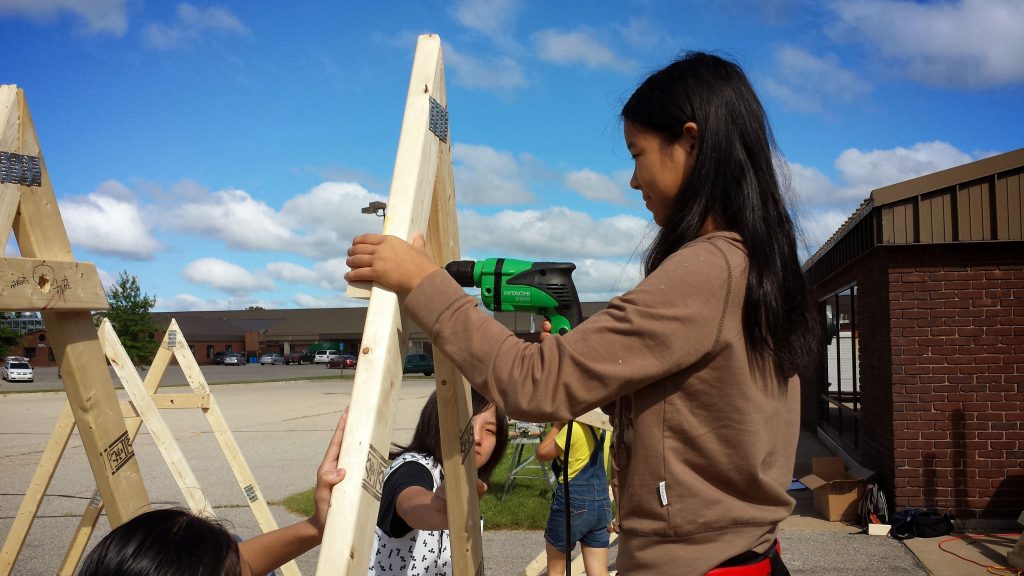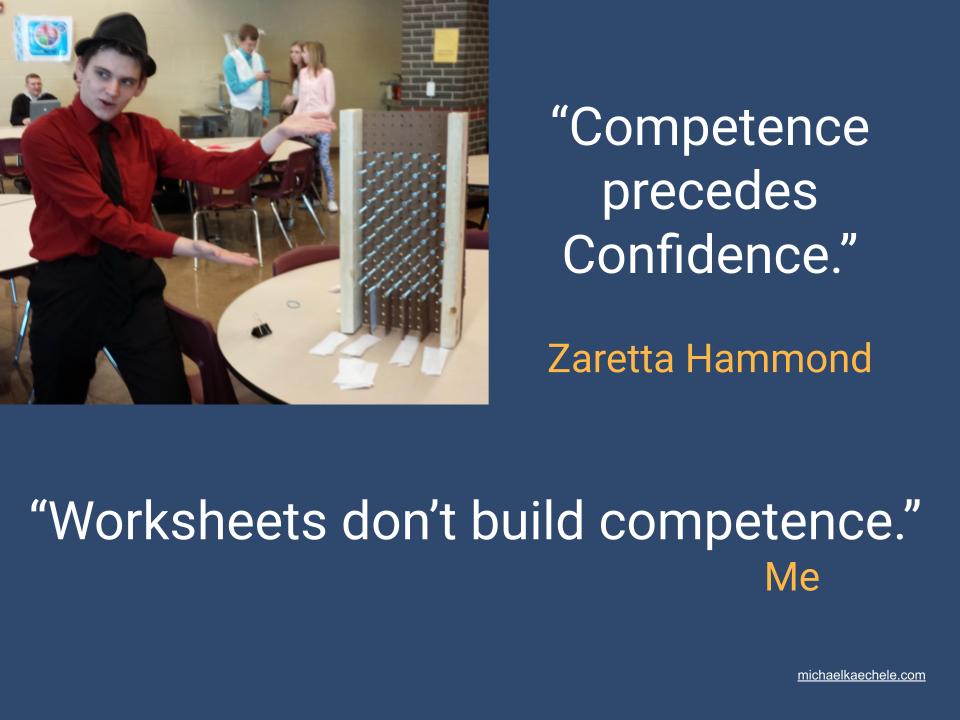
A Conflicting Gift
Before winter break I received an amazing gift. No, it wasn’t a teacher mug or Starbucks gift card, although I received several of those too. It was a heart felt thank-you letter from one of my students. I didn’t even place it in the “good feelings” file where I put things to read when I am feeling discouraged to remind myself why I teach. It currently stays right on my computer podium so that I re-read it often.
This is not the first time that I have gotten a student note of appreciation, but this one hit different. The student shared that they never believed they were good at math until this year. Part of me felt gratified for helping this student see what I see in them every day, but part of me felt very sad that none of their previous six elementary teachers had unlocked this student’s belief in themself.
My school has advanced math classes (which I do not teach), and I highly suspect that many of my students downgrade their mathematical self image based on the fact that they are not in advanced math. My classes are not remedial, just regular 6th grade math, but many students see this class as a negative academically, especially if they are highly successful in their other subjects. They believe that they are “bad at math” or in the “dumb class” (their words, not mine).
I was surprised because the student who wrote this heartfelt note is one of my stronger math students. They are not a struggling student at all. Many students in their particular class have much lower skills and number sense requiring extra support and re-teaching. But this student is attentive, a creative problem-solver, a leader with their group at whiteboards, and performs well on assessments. Honestly, they are easy to teach.
Developing Confidence
Middle and high school is a time when most students are constantly attempting to figure out themselves. It’s a time concentrated on activities such as sports, arts, or passions. Friendships are often centered around similar interests and goals. Students may not articulate it, but sub-consciously they are determining their strengths and weaknesses creating value in who they believe they are.
I believe that a critical part of my job is to teach kid’s confidence in who they are as a person. Maybe in math too, but definitely in how they see themselves. An integral part of growing into adulthood is developing a positive self-image. I refuse to accept students’ statements that they are “not good at math.” I reframe it to “you don’t know how to do this yet.” I cannot force students to love math as I do, but I reject any negative comments about themselves.
Academically self-image is a huge factor in how students perform in school, especially when it comes to math. So many students don’t see themselves as mathematicians. It becomes a self-fulfilling prophecy.
- Student struggles in math.
- “I am a poor student.”
- “I can’t do math.”
- Lowers self-image.
- Quits paying attention.
- Quits doing practice work.
- Fails next assessment.
- Repeats cycle.
One of the most influential things that a teacher can do is to break this negative cycle and help students see that they can be successful. Of course one of the most powerful ways to do this is through the meaningful work of Project Based Learning. When students address real problems in their community, they begin to shift how they see themselves. They are motivated by work that is purposeful, instead of a worksheet. Students realize that they do have a voice and what they say matters, viewing themselves as powerful agents of change.
As students build their confidence, it leads to academic risk-taking, higher self-esteem, active goal-setting, and perseverance through struggles. They stop giving up easily but actively work through challenges. The self confidence of the SEL competency of Self-Awareness is the necessary first step toward self-efficacy. A student cannot be self-sufficient until they have a self belief in their abilities.
Building student confidence is hard work and takes time, effort, and building relationships with each student. It is probably unrealistic to expect to radically shift the confidence of every student in our classes, but we can nudge them incrementally on the spectrum toward self-belief.
How are you building confidence in your students? What meaningful work are they doing? How might PBL be the ideal framework for students to develop confidence on a path toward self-efficacy.
Learn with me!
If you are interested in how to use PBL to build your students’ confidence, I would love to have a conversation on how I can help. I am now scheduling workshops and book studies for spring and summer. Check out my workshop page or drop me an email at mikejkaechele@gmail.com. I would love to chat and co-plan meaningful PD for the educators at your school.
Pulse of PBL



